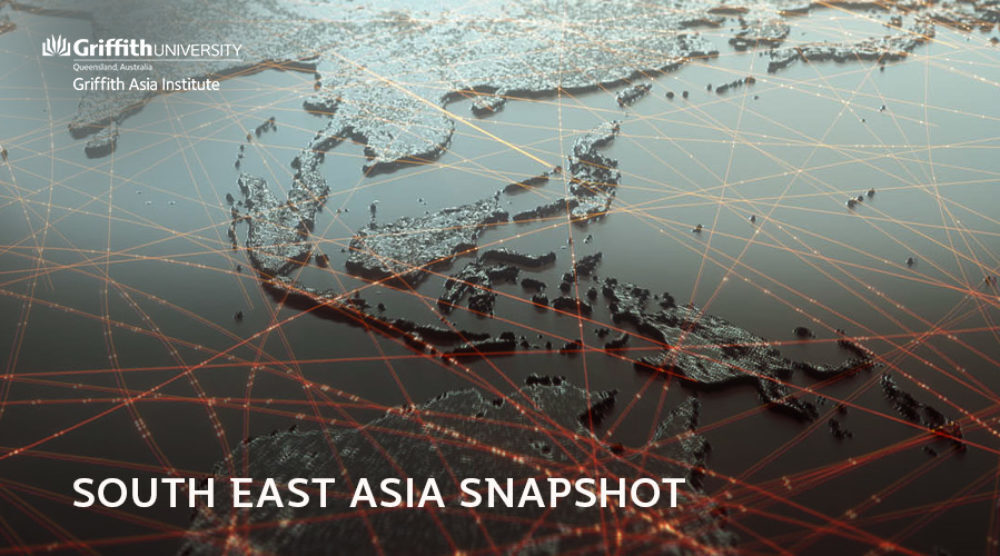A fortnightly snapshot of what’s making the news in South East Asia
Cambodia continues dialogue with Myanmar
Taking on the ASEAN Chair for 2022, Cambodia’s leaders appear intent on building dialogue within the region, including with Myanmar’s military leadership. Just one day after Aung San Suu Kyi’s sentencing, Myanmar’s foreign minister Wunna Maung Lwin visited Cambodia to discuss issues from bilateral relations to the re-establishment of Myanmar’s cooperation with ASEAN. Following on from that meeting, Cambodian Prime Minister Hun Sen is now scheduled to visit with Myanmar’s leaders for talks later this week (7-8 January).
The forthcoming visit has drawn varied responses from scholars and commentators across the region. While some suggest dialogue is an ‘unpalatable but necessary’ pathway to restoring cooperation within ASEAN, others take the view it is simply an exercise in cowboy diplomacy designed to reinforce the role of the autocrat. Cambodian Prime Minister Hun Sen has deflected criticism, making the point that ‘Cambodia knows how to work on this’.
As ASEAN chair, Cambodia holds firmly to its ambition of bringing the South China Sea Code of Conduct to conclusion. With this in mind, it is in the nation’s interests to bring Myanmar back into the ASEAN fold. Moreover, as it is likely to be Hun Sen’s last opportunity to preside over the ASEAN leadership, he is focused on delivering a legacy for both Cambodia and the region. However, the road to peaceful negotiation in Myanmar is still a long way to go and all eyes are pinned on Cambodia as the new ASEAN chair to resolve the dispute.
Duterte withdraws from the 2022 election race
Adding a new twist to the Philippines 2022 national election race, President Duterte withdrew his bid for the Senate, just one month after announcing his nomination.
The last-minute withdrawal came just a few hours after his chosen successor, Senator Christopher Go, pulled out of the Presidential race. While neither Duterte or his party provided comment on the withdrawal, he assured the nation that his administration would ‘ensure honest, peaceful and free elections’. No easy feat, particularly in the general election that will see thousands of candidates contest some 18,000 positions at various tiers of government across the nation.
As a result, the May election will now not only bring Duterte’s 6-year presidential term to an end, it foreshadows his retirement from politics. And yet, he may well remain in the spotlight, as pressure for reinstating currently deferred international investigations into his ‘war on drugs’ gains momentum.
Vietnam jails activists for opposing the government
Vietnam came under international criticism through December for the jailing of four prominent human rights defenders and activists accused of spreading information against the government through social media. The latest arrests follow a worrying pattern in Vietnam, with hefty sentences—including in one case, ten years imprisonment—signaling a declining tolerance for dissent and opposition within the country.
The United States was quick to condemn the arrests, noting that some of the cases had already been identified by UN Working Group on Arbitrary Detention as contravening international human rights law. The UN Human Rights Office in Vietnam also expressed concern. On receiving his sentence, activist Trinh Ba Phuong said openly that the charge was a betrayal to the Vietnamese people and suppression for those who fought for freedom.
These incidents are the latest in a series of arrests that appear to reflect Vietnamese government’s intention to eliminate the opposite voices, including in the lead-up to January’s Communist Party Congress. International pressure for such charges will surely come as the government continues to restrain the freedom of expression in Vietnam.
Thousands migrated to Thailand as the Myanmar clashes continue
Thousands of Burmese villagers have fled across the Thai border following intensified violence between the rebel Karen National Union (KNU) forces, and Myanmar’s military forces through December.
Thai authorities have strengthened security patrols along the border, while NGOs have stepped in to providing food, water and essential supplies for the growing number of refugees. Human Rights Watch representatives have called on the Thai government to provide humanitarian access and assistance to those in need, while arguing against forcible repatriation. Meanwhile the Myanmar-based Office of the UN Human Rights Commissioner (UNHCR) has expressed concern about the situation but has been unable to provide assistance on the ground due to insecurity and access issues.
Malaysia and Singapore temporarily suspend the Vaccinated Travel Lanes
Malaysia and Singapore agreed to temporarily suspend their Vaccinated Travel Lanes (VTL) from late December 2021 until late January 2022 due to the rise of the COVID-19 cluster. The cluster, emerged in Singapore following three positive local transmissions while other recent tests have indicated the Omicron variant is at play.
In spite of that, those who have existing air and bus travel bookings are still allowed to make the trips provided they comply with safety requirements. Additional tickets sales are expected to resume from late January following further assessments.
Malaysia’s Ministry of Health is encouraging all travelers to follow VTL safety procedures and urging the use of routine COVID-19 self-tests. Singapore Airlines has gone further to suspend all new VLT travel bookings (including with Australia) until 20 January 2020.
The suspension will, inevitably, affect the local businesses in both countries. Should the COVID-19 Omicron cases continue to rise beyond the January deadline, it is possible that further measures including longer quarantine requirements, additional testing measures, and delays in reciprocal travel will be imposed.
Sovinda Po is a Research Assistant at the Griffith Asia Institute.








